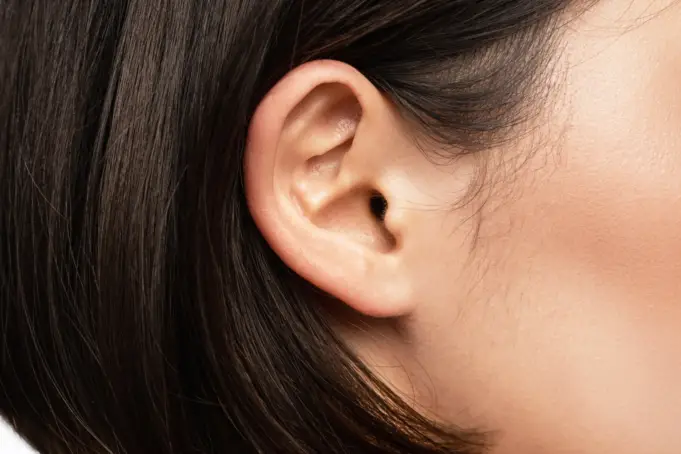Ear discharge, medically known as otorrhea, refers to any fluid that drains from the ear. It can manifest in various forms, including yellow or brown earwax, clear fluid, blood, or pus. While ear discharge is a common condition, especially in children, adults may also experience it. This article aims to explain the causes of ear discharge, when you should seek medical attention, and effective treatments. Additionally, we will answer frequently asked questions (FAQs) about this condition.

What Are the Causes of Ear Discharge?
Ear discharge is primarily caused by infections, but several other factors can contribute to it. Below are the most common causes:
1. Foreign Objects in the Ear Canal
One of the most common reasons for ear discharge, especially in children, is the presence of foreign objects in the ear canal. Small items such as beads, cotton balls, earplugs, or ear stickers can become lodged in the ear, causing irritation, infection, or pain. As a result, ear discharge may occur along with other symptoms, such as reduced hearing, a sensation of fullness in the ear, and in some cases, bleeding.
2. External Ear Infection (Otitis Externa)
Swimmer’s ear (otitis externa) is an infection that affects the outer ear canal, usually caused by bacteria or fungi. Otitis externa can lead to redness, swelling, and itching within the ear canal. You may also notice muffled hearing or ear discharge. This type of infection is particularly common in individuals who spend a lot of time in the water.
3. Middle Ear Infection (Otitis Media)
Middle ear infections occur when fluid accumulates behind the eardrum, often due to bacteria or viruses. As pressure builds up, it can cause pain, hearing loss, and fever. If the infection becomes severe, the eardrum may rupture, leading to ear discharge that may contain pus or blood. Ruptured eardrums are more likely to occur when the infection is untreated.
4. Ruptured Eardrum
A ruptured eardrum (perforated eardrum) can also result in ear discharge. The eardrum may rupture due to excessive pressure, caused by things like deep insertion of cotton swabs, sudden changes in air pressure (like during air travel), or loud noises. In addition to ear discharge, a ruptured eardrum can lead to symptoms like sharp pain, hearing loss, tinnitus (ringing in the ears), and dizziness.
5. Head Trauma
Trauma to the ear or head may cause clear or watery ear discharge, often due to damage to the eardrum or surrounding tissues. In severe cases, cerebrospinal fluid (CSF), which surrounds the brain and spinal cord, may leak from the ear. Symptoms of head trauma can include dizziness, confusion, severe headaches, and changes in hearing. Immediate medical attention is essential in these cases.
6. Nasopharyngeal Cancer
In rare instances, ear discharge may be related to nasopharyngeal cancer, a type of cancer that begins in the nasopharynx (the tissue connecting the back of the nose to the throat). The discharge in this case is typically thick and foul-smelling. Other symptoms associated with nasopharyngeal cancer include persistent ear infections, tinnitus, hearing loss, a lump in the neck, and nosebleeds.
When Should You See a Doctor for Ear Discharge?
While ear discharge often resolves on its own, some cases require medical attention. Seek immediate care if you experience any of the following:
- Persistent or worsening ear discharge that doesn’t go away after a few days.
- Severe pain or swelling around the ear.
- High fever or chills, which may indicate an infection.
- Hearing loss or changes in hearing, which could indicate more severe damage.
- Discharge that is bloody or foul-smelling, which may suggest an infection or more serious condition.
- Dizziness or balance problems, which could point to an issue with the inner ear or brain.
How Is Ear Discharge Treated?
Treatment for ear discharge depends on the underlying cause. Below are the most common treatment options:
1. Antibiotic Ear Drops for Infection
If ear discharge is due to an infection, your doctor may prescribe antibiotic ear drops to treat bacterial infections or antifungal medication for fungal infections. In many cases, the infection will resolve in a few days with appropriate medication.
2. Surgical Treatment for a Ruptured Eardrum
In cases where a ruptured eardrum does not heal on its own, surgical repair may be necessary. This is typically the case for large perforations that do not heal or for those that lead to recurrent infections.
3. Removal of Foreign Objects
If ear discharge is caused by a foreign object in the ear canal, a healthcare professional will need to safely remove it. You should avoid trying to remove objects yourself, as this can push them deeper into the ear canal.
4. Management of Head Trauma
In cases where head trauma causes ear discharge, it is crucial to visit a hospital for further evaluation. Depending on the severity, treatment may involve managing brain injuries or repairing the eardrum.
FAQs About Ear Discharge
How is Otorrhea Diagnosed?
Diagnosing otorrhea typically begins with a physical examination by a doctor. Using an otoscope, a device that allows a doctor to see into the ear canal, the physician can assess the presence of discharge, infection, or a ruptured eardrum. Depending on your symptoms, additional tests may be ordered, such as imaging studies or lab analysis of the ear discharge.
How Long Does Otorrhea Last?
The duration of ear discharge varies depending on the cause. In mild cases, such as minor ear infections or temporary ruptures, ear discharge may resolve in just a few days. However, in cases involving more serious infections, traumatic injuries, or ruptured eardrums, treatment may take longer.
Can Ear Discharge Be Prevented?
While it may not always be possible to prevent ear discharge, certain habits can reduce your risk of developing an ear infection or injury:
- Dry your ears properly after swimming or showering to prevent moisture buildup in the ear canal.
- Avoid inserting objects into the ear canal, such as cotton swabs or hairpins.
- Protect your ears from loud noises or sudden changes in air pressure.
- Keep your ears clean by wiping the outer ear gently with a towel. Avoid deep cleaning inside the ear.

Conclusion
Ear discharge, or otorrhea, is a condition that can stem from several causes, ranging from infections to foreign objects, head trauma, and even rare conditions like nasopharyngeal cancer. While minor cases may resolve without intervention, it is essential to seek medical attention if symptoms persist, worsen, or are accompanied by other concerning signs such as severe pain, hearing loss, or dizziness. By understanding the potential causes and knowing when to seek treatment, you can ensure the best outcomes for your ear health.

